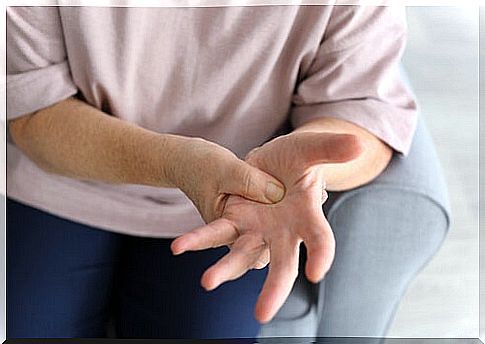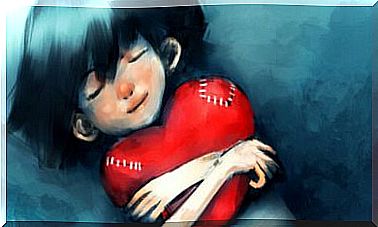Why Do Hands Fall Asleep?

At times, we can feel our hands go numb. That is, we have a tingling, pricking or numbness sensation in this part of the body. The technical name for this is paresthesia.
A paresthesia is a non-painful sensation that usually occurs when something puts pressure on a sensory nerve. Thus, when that pressure disappears, the normal thing is to feel the hands again without paraesthetic symptoms.
Although numbness in isolation is not worrisome, if it becomes chronic, occurring repeatedly and closely in time, it could be indicating a problem with a clinical entity.

How is it produced?
A paresthesia is caused by pinching a nerve. These sensitive nerves are all over our body. Thanks to them we can control the limbs or receive information from the senses.
It is then when, due to poor posture or having a weight on an area, that nerve becomes “paralyzed” and stops sending and receiving information. Therefore, that sensation of numbness appears and even, of not feeling the hands.
At first, there is a tingling or tickling sensation, which can even be pleasant. After about ten minutes, it goes into a phase of gentle numbness, which will continue for as long as the blood supply remains paralyzed. Finally, once the pressure is released, the sensation will gradually disappear, returning to normal.
Reasons why our hands go to sleep
As explained above, it occurs due to pinching or pressure exerted on a nerve. However, there are other reasons, not directly related to the sensory nerves, that can favor this.
Migraine
About 13% of people with migraine headaches have reported feeling that their hands go numb. Sometimes this sensation is so strong that they can be perceived as painful and lead to a lack of sensitivity in an entire half of the body.
Carpal tunnel syndrome
This syndrome is the main cause of chronic paresthesias in the hands. It tends to occur more frequently in women and in people between the ages of 30 and 60.
In the hand, we have a nerve that passes through an area called the carpal tunnel. Thus, in people who usually work or play sports with their hands, there is excessive pressure on that nerve. In this case, it is common for the thumb area to fall asleep, but it can extend through the palm of the hand to the ring finger.
Poor blood circulation
Inadequate blood supply can cause blood to circulate poorly in certain areas. In this way, if the involved area includes a sensory nerve, it can cause it to not act properly and cause paresthesia.
Stroke
In this case, numbness in the hand or entire arm may be indicating a serious health problem, for which a doctor should be consulted immediately.
In a cerebrovascular accident (stroke, cerebral infarction, stroke…) it is produced by a sudden decrease or obstruction of the blood supply in the brain, or by a rupture of a cerebral vessel. Its appearance can lead to death or, in other cases, to leave really serious sequelae in patients.
Neuropathy
Paresthesias are common in peripheral neuropathies, a disorder that results from damage to the peripheral nervous system.
The peripheral nervous system includes all the sensory nerves of the body, so if there is a malfunction of this system, it will cause tingling sensations in the affected areas.

Cervical problems
Poor posture, muscle problems, and more serious problems such as osteochondrosis (bone and cartilage malformation) can cause numbness in the hands.
This unsuitable condition of the cervicals can press on nerves that are conducted through the arm and cause paresthesia in the hand. Depending on the origin of the problem, muscle and posture correction treatments can help solve it.
Lack of vitamin B12
This vitamin, generally in foods of animal origin, is essential for the production of proteins involved in the formation of red blood cells and the maintenance of the central nervous system.
The lack of B12 can lead to deficiencies in the blood that produce, in addition to paresthesia, anemia, loss of appetite, fatigue, depression or cognitive problems.
Others
In addition to the causes mentioned above, the hands also fall asleep for other reasons such as brachial plexus neuralgia, multiple sclerosis, tennis elbow, shingles, HIV, substance use, toxins, radiation therapy, diabetes, hypothyroidism, etc.
So, in case your hands fall asleep constantly or it does not disappear when the area is released, it is best to consult a professional and see why it may be happening and what is the best solution.









